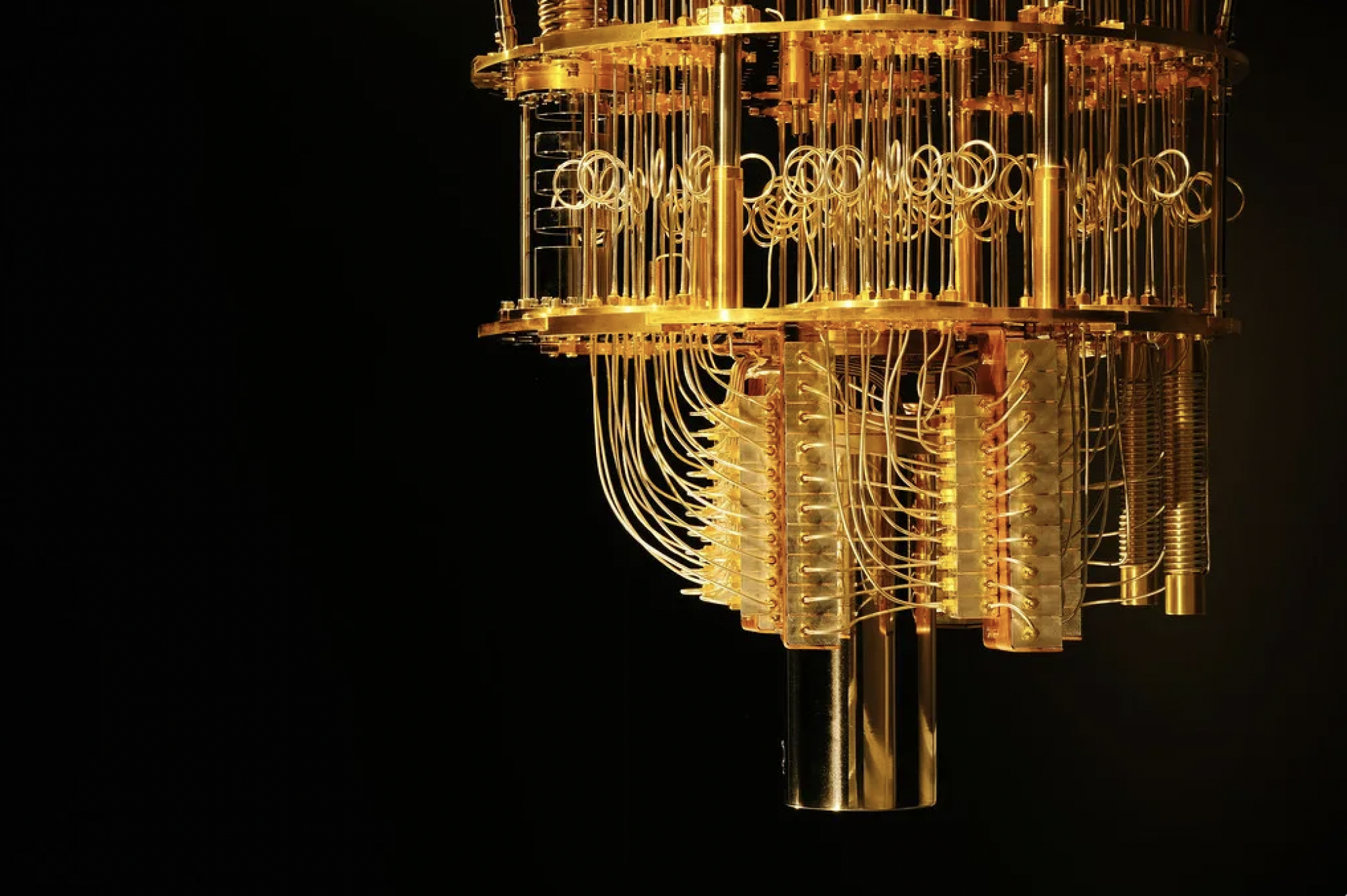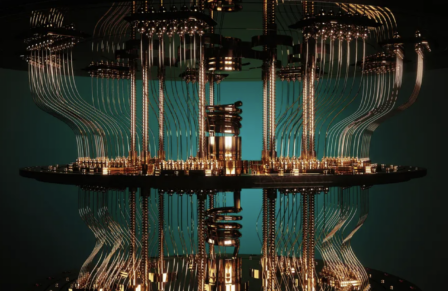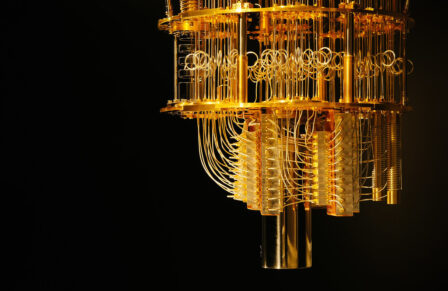Should the aerospace and advanced manufacturing sectors be exploring quantum technologies?
Posted 26 May 2023
This blog explores why quantum computing, quantum sensing and quantum-safe encryption are relevant for the aerospace and advanced manufacturing sectors.
Quantum computing – hype or opportunity?
There has been a lot of coverage of quantum computing recently, and users may be left wondering whether quantum computing provides business opportunities, or is simply marketing hype.
Qubits differ from classical bits
Quantum computing differs fundamentally from classical computing used in laptops and smartphones. Qubits, the quantum equivalent of classical bits, can be in quantum “superposition” states of both “0” and “1” simultaneously. Parallel processing over many qubits in superposition can give quantum computers huge benefits over classical computers.
The NISQ era
In the current Noisy Intermediate Scale Quantum (NISQ) era of quantum computing, devices are small, have limited connectivity, and qubits are error prone. In the future physical qubits will be grouped into logical qubits, and quantum error correcting codes will detect and correct errors in the physical qubits before the logical qubit is corrupted, enabling fault tolerant devices.
The future of quantum computing
Shor’s factoring algorithm, which can break some current cryptography, and Grover’s search algorithms will require large, universal, fault tolerant quantum computers with thousands of logical qubits and millions of physical qubits. Even though there are a wide range of different quantum technologies, and the number and reliability of qubits continues to increase, such devices may be at least a decade away.
The search is on for algorithms that can be run with NISQ era hardware. Most near term algorithms are either hybrid, variational algorithms, where a classical computer optimises a quantum device, or use quantum annealing devices. Another promising area of research is error mitigation, which may enable NISQ devices to run some algorithms much sooner than expected.
Optimisation using quantum computing
In order to maximise profit, and operate sustainably, aerospace and advanced manufacturing businesses need to optimise their use of scarce resources. Businesses face many optimisation problems, and quantum optimisation algorithms can often identify the best solution amongst a set of feasible options. Optimisation problems are good candidates for quantum advantage, because classical computers often struggle with these problems because typically the number of options increases exponentially with the size of the problem. Use cases include optimisation of all, or part, of a supply chain, a factory or a work unit. For example, D-Wave and DENSO announced that they were working together to optimise control of Automated Guided Vehicles (AGVs) on factory floors using D-Wave’s quantum annealing device, supported by a classical computer.
We note that combinatorial optimisation problems, where the inputs are binary, seem particularly well suited to quantum computing. This is because if the inputs are real numbers, it is more difficult to show an improvement over classical techniques such as gradient descent, which often work well.
Quantum machine learning
Quantum machine learning (QML) algorithms to detect anomalies are another good candidate for early adoption, with use cases including detection of manufacturing defects. Although it is a challenge to load a lot of data to QML models, since anomalies are usually rare, less data may need to be loaded.
Simulation of physical systems on quantum computers
Advances in aerospace and advanced manufacturing are often triggered by advances in material science. Quantum simulation of physical systems, and in particular quantum systems, will help design better materials. For example Xanadu and Volkswagen are collaborating to study quantum simulation of battery chemistry.
Quantum simulation also enables unique “Digital Twins”. BMW Group and Pasqal, a neutral atom quantum computer company, are assessing if auto part conformance with specification can be checked by quantum simulations. Airbus believes that quantum computing can help with computational fluid dynamics, one of the use cases for our qTAP programme described below. We are excited by the prospect of including quantum simulation into our Digital Twins.
Quantum sensing
Quantum sensors can give highly accurate measurements of physical quantities such as frequency, acceleration, rotation rates, electric and magnetic fields. In the future precise acceleration measurements from quantum sensors can be used to calculate positions in navigation systems, and there are likely to be many other applications relevant to aerospace and advanced manufacturing.
Quantum communications
Shor’s factoring algorithm has the potential to crack encrypted messages in schemes like RSA (Rivest–Shamir–Adleman). Although cryptographically significant quantum devices are in the future, it will take a long time to change legacy encryption. Standards are already being introduced to mandate quantum safe encryption. Organisations in the aerospace and advanced manufacturing sector need to have a strategy to evaluate their hardware and software encryption schemes, and if necessary transition to quantum safe encryption. Quantum key distribution (QKD) guarantees, by the law of quantum mechanics, that snoopers can be detected, and is relevant for particularly sensitive messages. Digital Catapult is investigating using QKD to encrypt sensitive messages between two IoT manufacturing cells, and are aware of use cases involving the transmission of critical messages between two airport control towers.
Starting your quantum journey – our technology access programme
You may be wondering how to start the journey to make your organisation quantum ready. Digital Catapult is running a user-led technology access programme with partners including ORCA computing, Riverlane, BT and Kets. Companies will gain a competitive advantage by understanding the future benefits of secure quantum computing for their industry, upskilling their employees and encouraging innovation. Specific benefits for this free programme, which starts in September 2023, include:
- Participation in a structured programme with tailored support
- Training by world class suppliers
- Masterclasses on topics like quantum safe encryption
- Access to quantum computing experts
- A chance to explore relevant use cases of quantum computing
- Access to the ORCA PT-1 photonics quantum computer and quantum computing simulation tools
- An opportunity to join a quantum ecosystem of suppliers and end users
Contact us at [email protected] to express an interest in joining the programme.
To conclude
Quantum technologies will disrupt the aerospace and advanced manufacturing sectors. It is important to understand these technologies, and have a strategy in place to realise their benefits, and guard against their risks. Why not get started today by applying to our quantum technology access programme?




